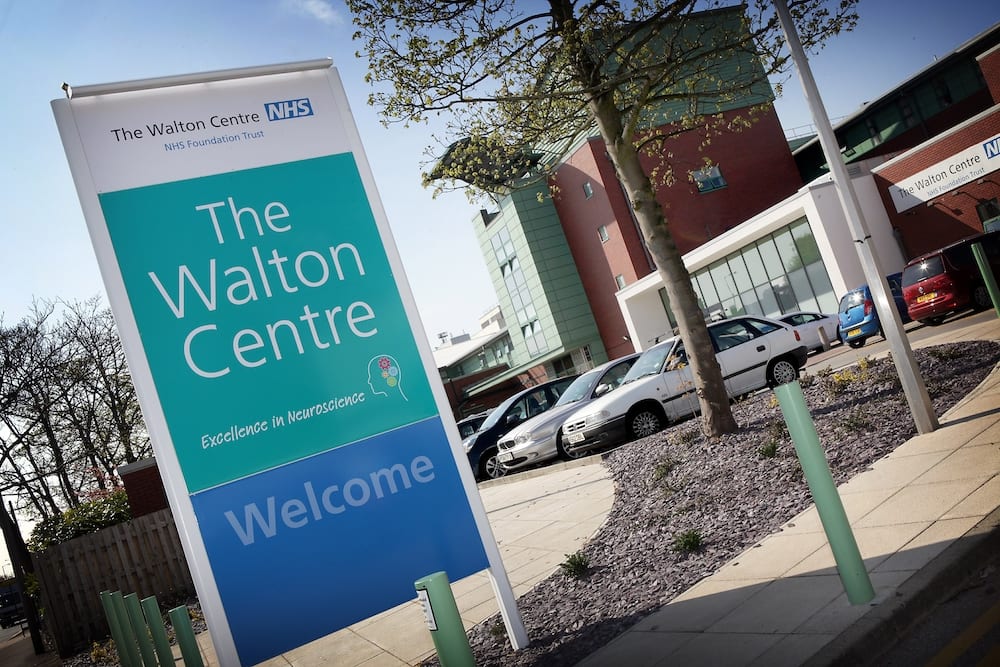
Lifestyle
Walton Centre Pain Management Programme reaches 40 years of service
2 years ago

The Walton Centre NHS Foundation Trust’s Pain Management Programme (PMP) has reached the incredible milestone of 40 years of service delivery.
Since small beginnings in the sewing room of the old Walton Hospital in Fazakerley, the Walton Centre NHS Foundation Trust’s Pain Management Programme has delivered courses to thousands of patients with lifelong pain conditions, from chronic pain following injury, to Complex Regional Pain Syndrome. In the last 20 years, the programme has seen over 15,000 patients. Chronic pain affects 15.5 million people in England, 34% of the population, and is more common in areas of greater deprivation. Among young adults with chronic pain, the proportion with high impact pain rose from 21% to 32% between 2011 and 2017.
PMP Service Lead and Consultant Clinical Psychologist Dr Kerry Mathews said:
“I’m so incredibly proud of our team and the amazing support they have provided to patients over the decades. From a handful of staff in the early 80s, to now – a 36-strong department comprising psychology, physiotherapy and occupational therapy teams is an incredible achievement.
“We serve a whole range of pain conditions in a very multi-disciplinary way, so that a number of aspects of a patient is considered and treated. There’s a wall in the break room filled with thank you cards from patients and their loved ones on how helpful they have found the coping mechanisms and support we give them. Long may it continue.”
The Programme offers a combination of therapies, including psychological, occupational therapy and physiotherapy.
Lead Occupational Therapist John Tetlow has worked in PMP for over 20 years, he said:
“I had my first experience of pain management during my time working on the neuro inpatient wards in 2003, but was successful in gaining a full-time post as a senior therapist in May 2007. The length of time I have worked here says a lot about how I feel about The Walton Centre.
“Living with chronic pain is very challenging for our patients, and helping them learn how to come to terms with and manage a long-term condition is not easy. We are patient, understanding and knowledgeable, and forming a trusting therapeutic relationship is important. Working with patients from initial assessment to six-month follow-up shows us how we support meaningful changes people make.”
Patients may not experience pain reduction, however compared to before PMP, patients report a 32% reduction in worrying thoughts about their pain symptoms, as well as a 48% improvement in confidence to self-manage their pain. Patients who complete the programme also demonstrate a 35% increase in physical ability afterwards.

Research Lead and Consultant Clinical Psychologist Dr Katie Herron said:
“Whilst chronic pain can be difficult to treat medically and achieve pain reduction, the PMP can help people with chronic pain make improvements in how they experience pain and their quality of life. I regularly hear patients who have gone through one of the courses say that it has helped them to move forward positively and reach achievable goals.”
Between 75-90% of patients make significant changes towards their quality of life goals. This includes activities such as getting back to a specific exercise, engaging more in a hobby, going on more outings with family and getting back into work or study.
Pain Specialist Physiotherapist Amy Abbott said:
“In physiotherapy, what we are looking to achieve through psychologically informed approaches is to enable patients to reach their goals, allowing for a better quality of life. We consider the patients’ individual needs; helping them to make sense of the pain, improve movement quality, strength and endurance allowing patients greater confidence in returning to valued activity.
“This varied approach allows for patients to find something that works for them and facilitates confidence in trying new activities or reestablishing connection with previously enjoyed exercise. Patients feedback that they feel listened to, they feel physically stronger and more confident to trial new activity, they feel hopeful and excited for the future and newfound opportunities.”









 Subscribe
Subscribe Follow Us
Follow Us Follow Us
Follow Us Follow Us
Follow Us Follow Us
Follow Us Follow Us
Follow Us











